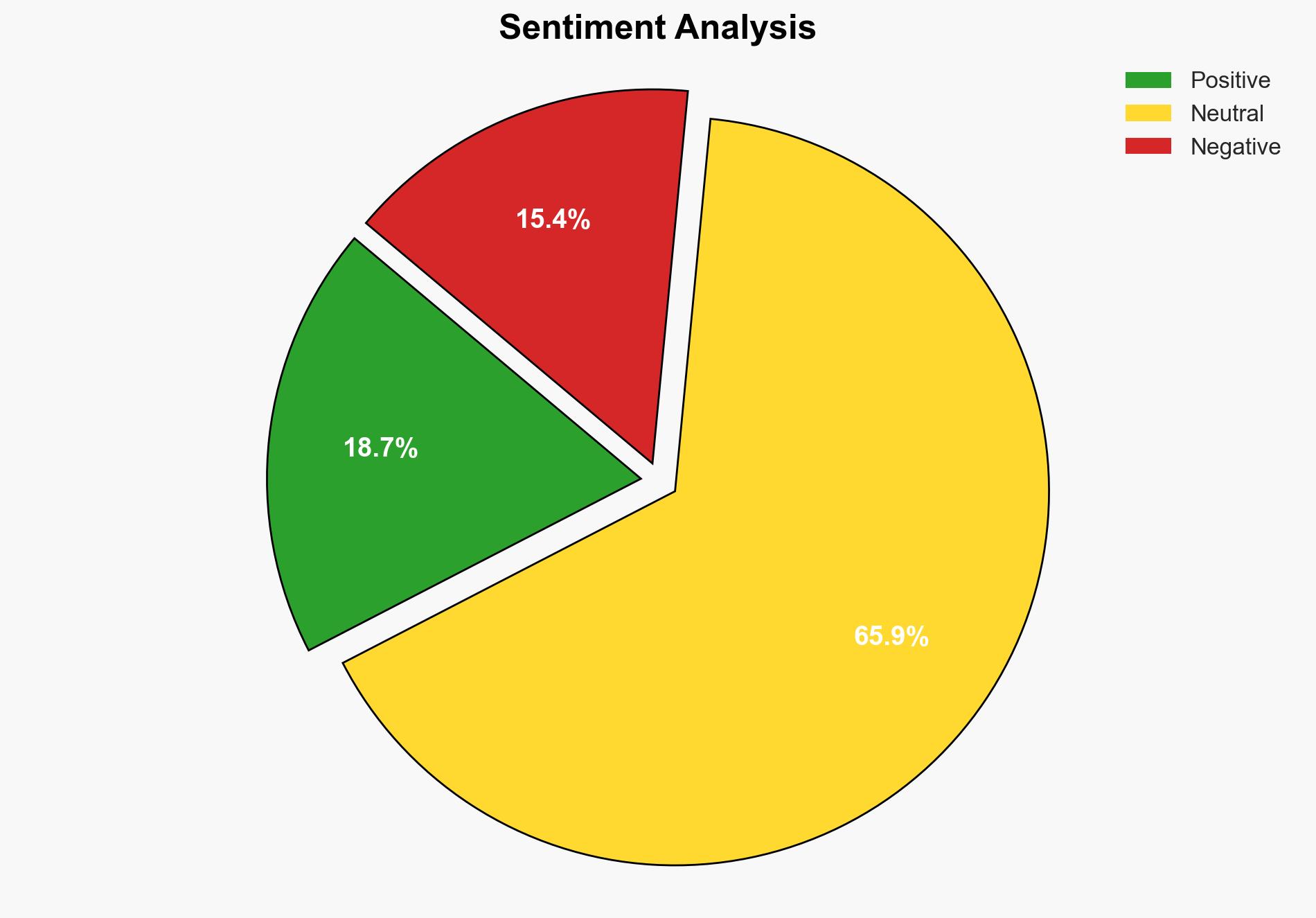New Ubuntu Linux security bypasses require manual mitigations – BleepingComputer
Published on: 2025-03-28
Intelligence Report: New Ubuntu Linux Security Bypasses Require Manual Mitigations – BleepingComputer
1. BLUF (Bottom Line Up Front)
Recent discoveries have highlighted security bypasses in Ubuntu Linux that allow local attackers to exploit vulnerabilities in kernel components. These bypasses enable unprivileged users to create user namespaces with administrative capabilities, posing significant security risks. Immediate manual mitigations are required to address these vulnerabilities effectively.
2. Detailed Analysis
The following structured analytic techniques have been applied for this analysis:
General Analysis
The vulnerabilities were discovered in the user namespace restrictions of Ubuntu Linux. These restrictions, when enabled, allow users to act as root within isolated sandbox environments. Researchers from a cloud security compliance company identified multiple bypass methods, including the use of aa exec, busybox, and ld preload techniques. These methods exploit permissive AppArmor profiles to escalate privileges within namespaces.
3. Implications and Strategic Risks
The security bypasses pose significant risks to systems running Ubuntu Linux, particularly in environments where user namespace restrictions are enabled by default. Potential impacts include unauthorized access, data breaches, and system control by malicious actors. These vulnerabilities could undermine national security, disrupt regional stability, and affect economic interests if exploited at scale.
4. Recommendations and Outlook
Recommendations:
- Administrators should enable kernel AppArmor restrictions to limit unprivileged and unconfined namespace creation.
- Disable broad AppArmor profiles for applications like busybox and nautilus that allow namespace creation.
- Apply strict bwrap AppArmor profiles for applications relying on user namespaces.
- Regularly review and update security configurations to mitigate potential exploits.
Outlook:
In the best-case scenario, rapid implementation of recommended mitigations will prevent exploitation and maintain system integrity. In the worst-case scenario, failure to address these vulnerabilities could lead to widespread security breaches. The most likely outcome involves a gradual improvement in security posture as organizations adopt recommended practices.
5. Key Individuals and Entities
The report references significant individuals and organizations involved in the discovery and response to these vulnerabilities:
- Qualys – The security compliance company that identified the bypass methods.
- Roddux – The researcher who independently discovered the busybox bypass.
- Canonical – The organization responsible for Ubuntu Linux, which acknowledged the findings and is developing improved protections.




